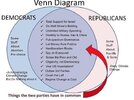- Messages
- 78,452
Yeah but Matty Liao has a history of "out there" opinions. You get that when you are a bioethicist by trade with a Doctorate in Philosophy . He does Ted Talks that freak merkins out often.For the people that do want to know what they(global elite) have planed for us down the road, here are some exerts of an interview for you to ponder. The whole interview is mind blowing and shows how much they just don't get(or do they) what all this will eventually and definitely lead to. In the interview these modifications will be optional, but we know that they won't stay that way for too long once they're up and running. Their excuse for everything they do will be in the name of climate change and or another possible pandemic. Which if you believe you deserve what you get.

How Engineering the Human Body Could Combat Climate Change
From drugs to help you avoid eating meat to genetically engineered cat-like eyes to reduce the need for lighting, a wild interview about changes humans could make to themselves to battle climate change.www.theatlantic.com
What are the various ways humans could be engineered to be smaller?
Liao: There are a couple of ways, actually. You might try to do it through a technique called preimplantation genetic diagnosis, which is already used in IVF settings in fertility clinics today. In this scenario you'd be looking to select which embryos to implant based on height.
Another way to affect height is to use a hormone treatment to trigger the closing of the epiphyseal plate earlier than normal---this sometimes happens by accident in vitamin overdose cases. In fact hormone treatments are already used for height reduction in overly tall children. A final way you could do this is by way of gene imprinting, by influencing the competition between maternal and paternal genes, where there is a height disparity between the mother and father. You could have drugs that reduce or increase the expression of paternal or maternal genes in order to affect birth height.
Isn't it ethically problematic to allow parents to make these kinds of irreversible choices for their children?
Liao: That's a really good question. First, I think it's useful to distinguish between selection and modification. With selection you don't really have the issue of irreversible choices because the embryo selected can't complain that she could have been otherwise---if the parents had selected a different embryo, she wouldn't have existed at all. In the case of modification, that issue could certainly arise, but even then I think it's important to step back and ask why we are looking at these solutions in the first place. The reason we are even considering these solutions is to prevent climate change, which is a really serious problem, and which might affect the well being of millions of people including the child. And so in that context, if on balance human engineering is going to promote the well being of that particular child, then you might be able to justify the solution to the child.
Why are you selling it as "what the global elite are planning" ?

